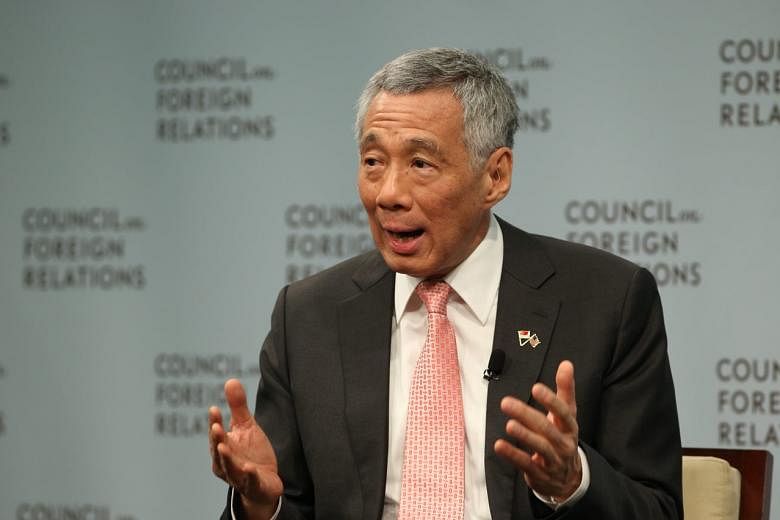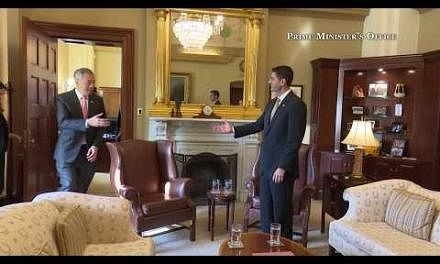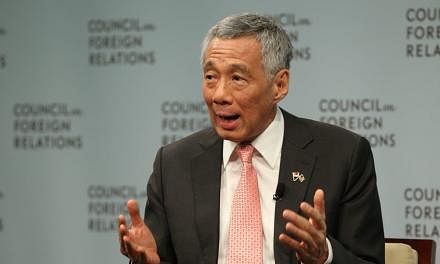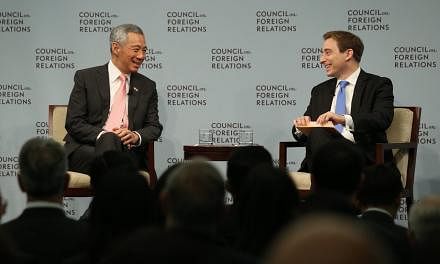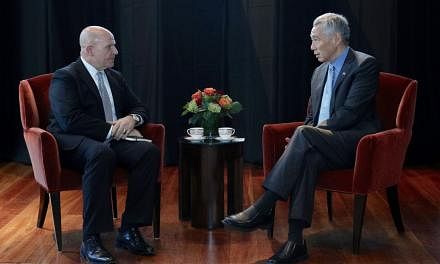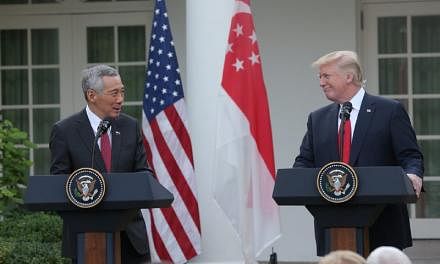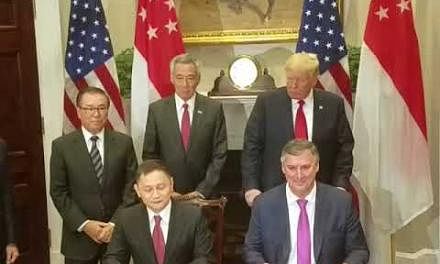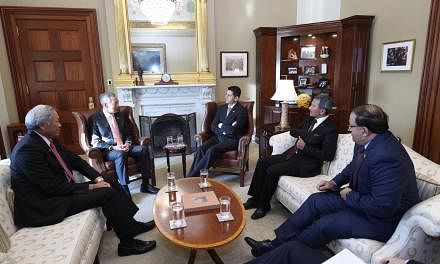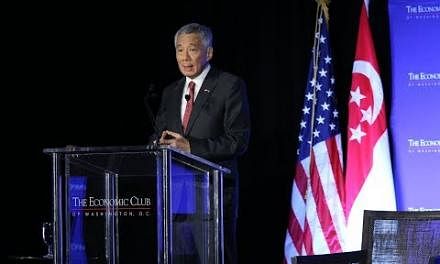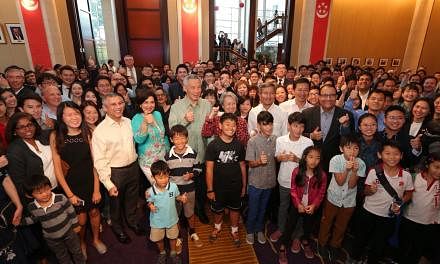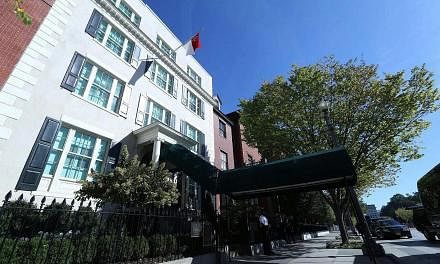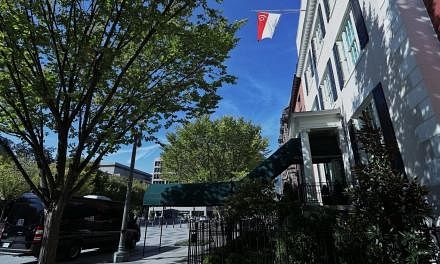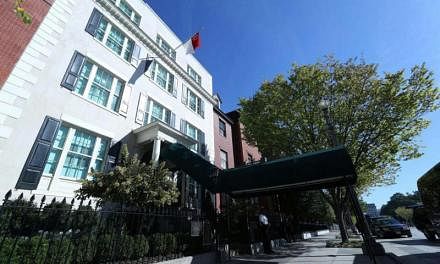WASHINGTON - Besides working with China and also keeping Russia in the picture, it is essential for the United States to keep South Korea and Japan on its side in dealing with North Korea, Singapore Prime Minister Lee Hsien Loong told an audience at the Council on Foreign Relations (CFR) in Washington.
Mr Lee also cautioned that pressure on North Korea must be accompanied by dialogue.
"You always have the risk of a miscalculation," he said at the session moderated by New Yorker staff writer Evan Osnos.
"This administration has made some very strong statements but at the same time they've made clear they don't want to go to war," he said.
"The North Koreans are not suicidal; they are past masters at thunder and alarums and not without success. If we are lucky you can get past this hard point, if not we can have a miscalculation.
"You have to apply pressure, you also have to talk," he added.
"You cannot not talk, because if you don't talk you can't get anywhere. If you only talk then nothing will happen, they will just be strung out, you've gone through this so many times before."
But on a further cautionary note he added: "Whether dialogue will reach an outcome before you have a confrontation, I cannot say.
"To play this game you need to work with the Chinese," he said.
"The Russians have to be somewhere in the picture, and most of all you must have the South Koreans and the Japanese on your side. Even if you want to do something decisive, if the South Koreans are not with you, you can't do that," he added.
Mr Lee met President Donald Trump on Monday and spoke with National Security Adviser General HR McMaster on Tuesday (Oct 24). He met Senator John McCain on Wednesday morning and was due to meet leaders of the Senate Foreign Relations Committee in the afternoon.
His visit comes as President Trump prepares for a trip to Asia next month - his first to the region. High on the agenda as the President visits Japan, South Korea and China will be the North Korean crisis.
Defence Secretary James Mattis, speaking to journalists en route to Thailand after a meeting in the Philippines of defence ministers of Asean and regional partners, said: "The more we do together today, the greater the chance for enduring peace in the future.
"That's really what it is all about, to keep DPRK efforts firmly in the diplomatic lane for resolution," he said.
But many Washington-based analysts are deeply worried about the bellicose rhetoric of recent months from both Pyongyang and Washington.
The North Korean leadership sees President Donald Trump as provocative, Sue Mi Terry, a North Korea expert formerly with the Central Intelligence Agency and the CFR and now with the consultancy Bower Group Asia, said last week.
"But they also don't want to invite a reaction from the United States," she said at a debate in Washington. While a military option for dealing with North Korea's threats had been formerly "unthinkable", however, there was a different situation now, she warned.
"What is different this year is that North Korea is near the end of its (nuclear) programme and we have a different leadership (in Washington) which is not a little bit unpredictable.
"Whether you are a hawk, or progressive, or conservative, everybody's nervous for different reasons because they feel they can't count on consistency from Washington," she said.
"At least at minimum the rhetoric has to stop, I don't see any upside to it. It limits our options," she added.
Jean Lee, a Fellow at the Wilson Centre who is based in Seoul, said at the same discussion that the most frequent question she gets from South Koreans is, "What is Trump going to do?"
The North Korean leadership had to show its people that they were strong as well, she said - and may also be looking for an opportunity to step back.
"We have had a somewhat predictable pattern of escalation, and we'll go into a quiet period, and there will be behind the scenes negotiation, but right now we're not allowing that to happen," she said.
"We need to allow a face-saving quiet period."
